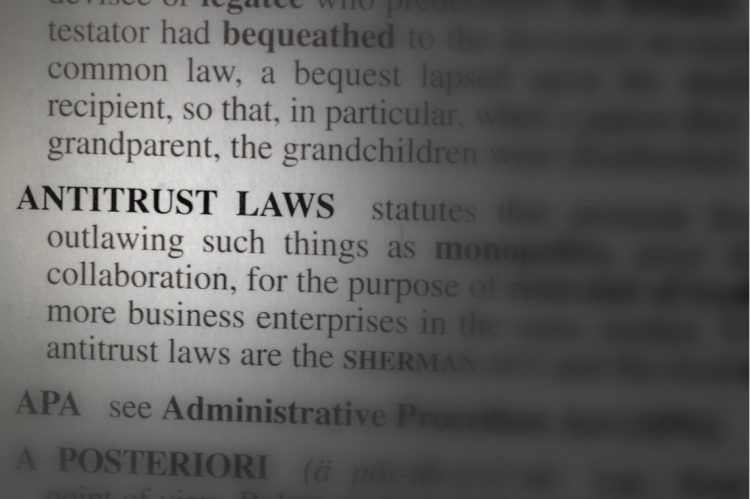In response to the National Association of REALTORS®’ (NAR) motion to dismiss the antitrust and conspiracy lawsuit first filed in August 2024, Michigan brokers and agents filed a lengthy brief in making a case against the associations and local MLS group for monopolistic practices and conspiracy.
The NAR and other defendants—the Michigan Association of REALTORS®; the Grosse Pointe Board of REALTORS®; the Greater Metropolitan Association of REALTORS®; the North Oakland County Board of REALTORS® and Realcomp II, a software company that manages MLSs—previously portrayed that the plaintiffs’ accusations as “a hollow set of allegations with no legal or factual basis,” read the filing.
The plaintiffs, in this brief filed Feb. 21, allege that the claims stated in the first amended complaint are “quite simple.”
“Defendants’ conduct—as illustrated through their mandatory requirement that all brokers and agents be members of their organizations in order to access the MLS and the associated ability to market properties—is unlawful and creates antitrust violations and their uniform enforcement of those practices to control the market creates a conspiracy.”
Citing other court cases, they argue that the NAR’s use of tying arrangements—through having brokers and agents purchase association memberships to access the MLS—violates antitrust laws and restricts trade.
Filed in the U.S District Court for the Eastern District of Michigan, the plaintiffs—Douglas Hardy, a licensed broker and owner and operator of Signature Sotheby’s International Realty; Glenn Champion, a head broker at Sotheby’s and a licensed attorney in Michigan and Dylan Tent, an agent affiliated with Sotheby’s—claim that NAR’s three-way agreement represents an antitrust violation.
To access the Multiple Listing Service (MLS) in Michigan, all brokers, agents and REALTORS® are required to be members of three associations: (NAR); the Michigan Association of REALTORS® and a local REALTOR® board.
According to court documents, Realcomp II—which claims to be Michigan’s largest MLS—is owned and operated by the local realty boards.
The goal of this case, according to the filing, is for Michigan to join Alabama, California, Florida and Georgia in their right to access the MLS without any other requirements or obligations to NAR and local associations.
There are over 16,000 members in these associations just in southeastern Michigan and over 35,000 in the state “paying tens of millions of dollars annually” to access the MLS and market real estate listings.
“The defendants’ practices are not limited to Michigan and in fact are present in most states where these requirements are similarly dictated by the NAR and the state and local boards,” reads the filing. “Defendants coerce plaintiffs to belong to their organizations by wielding their market power and thereby force brokers and agents into memberships and paying their requisite fees.”
After the Burnett v. NAR settlement, the plaintiffs said that being a part of the three associations, just to have access to the MLS, was “of no benefit.” According to the plaintiffs, since the settlement eliminated the requirement for MLSs to list broker’s compensation, it essentially invites brokers and agents to engage in “deceptive compensation practices and greatly diminishes any value these organizations have.”
Hardy, Champion and Tent, according to the filing, found the settlement’s resulting changes in the way brokers and agents handled commissions to be “intolerable” and the “proverbial straw that broke the camel’s back.”
On July 23, 2024, Hardy requested to terminate his membership with “NAR, MAR and NCOBOR and still maintain access and subscription to Realcomp as each of (his) agents holds a valid active license with the state of Michigan.”
The day after, Karen Kage—Realcomp’s chief executive officer—informed Hardy that although the MLS requires subscribers to be active members of the NAR, the Michigan Association of REALTORS® and a local board or association, the MLS was looking at other options.
“We have been researching discontinuing the requirement for the NAR and the Michigan Association of REALTORS® membership, but have not yet reached a conclusion on how or if we will move forward with this change,” reads Kage’s email.
Kage declined RISMedia’s request for comment—on whether Realcomp is still considering this change—saying she can not speak on ongoing litigation.
By not being able to terminate his membership to these three associations and still keep MLS access, Hardy, Champion and Tent argue that this “mandatory requirement and the tying of membership to the information on the MLS” constitutes an antitrust violation, a monopoly and a conspiracy, according to the court documents. They first filed the case on Aug. 12, 2024.
To further prove this point, the plaintiffs included a list of over 50 brokers across the country expressing the same dissatisfaction with the NAR and their state and local boards, which also require the same “mandatory membership.” To really drive it in, they also included “several other identical lawsuits” filed in other states. These federal lawsuits are pending in Michigan, Pennsylvania, Texas and Louisiana.
Though Realcomp was researching discontinuing the mandatory requirements for MLS access, other MLSs across the country have long provided access to non-REALTORS® based on local decisions or court cases. Another MLS in Phoenix, Arizona recently engaged in a high-profile dispute with NAR over a specific program allowing practitioners to access the MLS and certain benefits without REALTOR® membership.
NAR then proceeded to send a cease-and-desist letter to the Phoenix REALTORS® on Dec. 19, 2024. On Feb. 21, 2025, the two associations reached an agreement that eliminates Phoenix REALTORS®’ MLS Choice membership program, although the local association will continue to offer “non-member MLS access.”
Editor’s note: this story was updated on Feb. 27 to clarify rules around MLS access around the country, and also the dispute between Phoenix REALTORS® and NAR.












